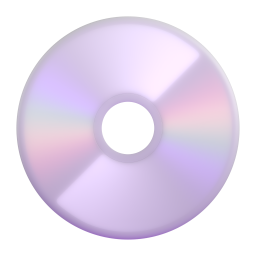💿
💿 Optical Disc
Also known as: CD, CD-ROM, Compact Disc
Unicode: U+1F4BF
Description
A silver optical disc, as a CD or DVD, used to play music or movies before the rise of streaming technology. Commonly used to represent CDs, DVDs, Blu-rays, and related film and music content, especially albums. See also 💽 Computer Disk and 📀 DVD.
Image Variants

3D
Color
Flat
High Contrast
Version Information
Emoji Version:1.0
Unicode Version:6.0
Keywords
cdcomputerdiskoptical
Shortcodes
| Platform | Shortcode | Action |
|---|---|---|
| Emojipedia | :optical_disk: | |
| GitHub | :cd: | |
| Slack | :cd: | |
| Discord | :cd: |
Additional Information
Category:Miscellaneous Symbols And Pictographs -> Office symbols
Definition:
A optical disc, of which the most common types are the CD and DVD. Can be used to store computer files, or used for distribution of music or http://emojipedia.org/optical-disc/
Adjectives:
- Of or relating to or involving light or optics
- Of, or relating to visible light
Nouns:
- Optical disc used to store digital data
- An optical disc used to store audio or other data.
- Compact disc is a digital optical disc data storage format.
- A digitally encoded recording on an optical disk that is smaller than a phonograph record; played back by a laser
- An optical storage medium for digital data.
- Compact disc; a form of digital media that is based on the use of a laser to read from a plastic disc in a reader device.
- A flat, round, optical medium that can store up to 700 megabytes of digital data or 80 minutes of audio. Data stored is read using a laser.
- Optical disc used to store data.
- Engineering physics is the study of the combined disciplines of physics, engineering and mathematics in order to develop an understanding of the interrelationships of these three disciplines.
- Science whose results are employed in technical applications.
- Applied science is a discipline of science that applies existing scientific knowledge to develop more practical applications, such as technology or inventions.
- Use of symbols to denote equipment, services, pipelines, boundaries and features.

